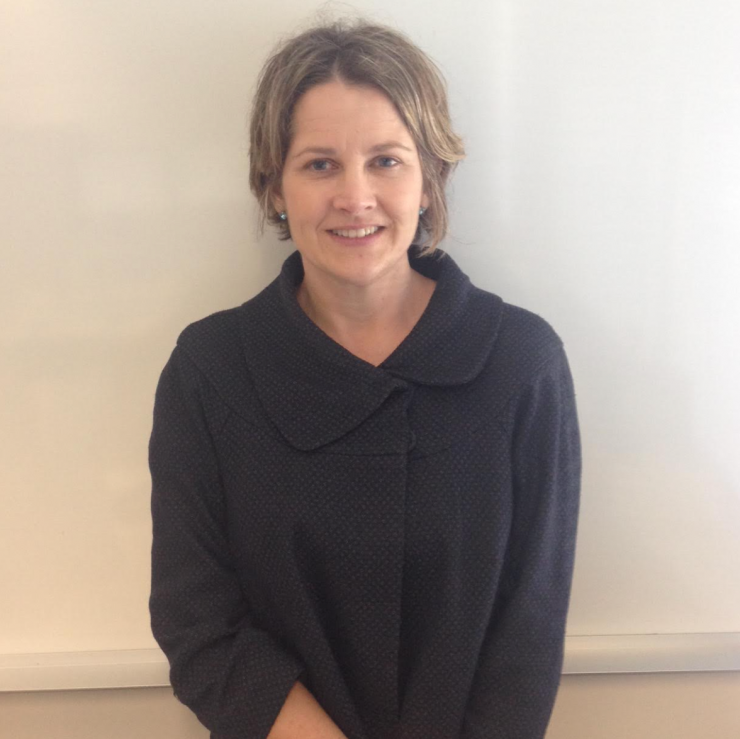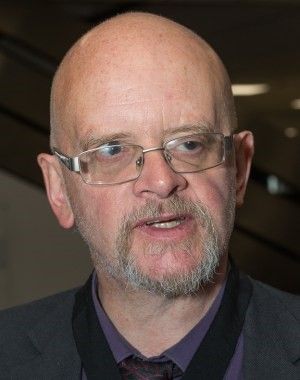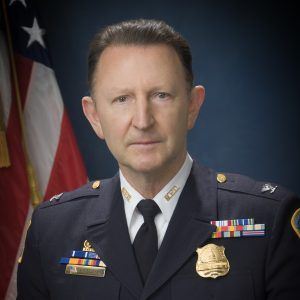Commander Stuart Bateson APM

Stuart holds a Masters of Business from the University of Newcastle and a Bachelor of Policing (Investigations) from Charles Sturt University. He is a Rotary Peace Fellow having graduated from the Chulalongkorn University program in 2013. In 2015 Stuart participated in The University of Melbourne's Law Enforcement and Public Health professional devolvement program. In 2017 Stuart was awarded the Australian Police Medal for distinguished service to law enforcement.
Stuart lives in the western suburbs of Melbourne with wife Milka, and children, Aleksandar and Natasha.
Professor Scott Burris
 Scott Burris, is a Professor of Law at Temple Law School, where he directs the Center for Health Law, Policy and Practice, and the Robert Wood Johnson Foundation's Public Health Law Research program. He is also Associate Director of the Centers for Law and the Public's Health: A Collaborative at Johns Hopkins and Georgetown Universities.
Scott Burris, is a Professor of Law at Temple Law School, where he directs the Center for Health Law, Policy and Practice, and the Robert Wood Johnson Foundation's Public Health Law Research program. He is also Associate Director of the Centers for Law and the Public's Health: A Collaborative at Johns Hopkins and Georgetown Universities.
Burris began his career in public health law during the early days of the HIV/AIDS epidemic. He was the editor of the first systematic legal analysis of HIV in the United States, AIDS and the Law: A Guide for the Public (Yale University Press, 1987; New Guide for the Public published 1993), and spent several years lobbying and litigating on behalf of people with HIV as an attorney at the American Civil Liberties Union. Since joining the Temple faculty in 1991, his research has focused on how law influences public health and health behavior.
He is the author of over 100 books, book chapters, articles and reports on issues including discrimination against people with HIV and other disabilities; HIV policy; research ethics; and the health effects of criminal law and drug policy. His current research topics include health governance, the regulation of sexual behavior, harm reduction and human research subject protection. He has been particularly interested in developing theory and methods aimed at promoting effective local health governance. His work has been supported by organizations including the Robert Wood Johnson Foundation, the Open Society Institute, the National Institutes of Health and the Centers for Disease Control and Prevention.
He has served as a consultant on public health law with organizations ranging from the United Nations Development Programme and the American Psychological Association to the Institute of Medicine and the producers of the Oscar-winning film Philadelphia. He is a member of the Law, Policy and Ethics Core of the Center for Interdiscplinary Research on AIDS at Yale, and serves as an advisor to the Tsinghua University AIDS Institute, the Shanghai Academy of Social Sciences Research Center for HIV/AIDS Public Policy and the Program in Bioethics at Monash University. Burris is a graduate of Washington University in St. Louis and the Yale Law School.
Grant Edwards (Chairperson)

In 2017, Grant's lived experience was featured on Australian Story. His 2019 memoir titled 'The Strong Man' was released in 2019.
After joining the AFP in 1985, Grant had a diverse career working across family law, international drug trafficking, major organised crime and people smuggling.
He quickly rose through the ranks to Commander and personally established cybercrime units to fight child exploitation and human trafficking. He gained a reputation as a disciplined security advisor for governments around the world such as East Timor, Afghanistan and the Americas.
Most recently, he completed a 3 year posting to Washington DC as the AFP’s most senior officer in the Americas responsible for all law enforcement engagement with Canada, USA, Mexico, Central and South America.
During that time, he hosted two global mental health symposiums for police bringing together experts from law enforcement, academia, policy and the medical profession across the world to identify and enhance a unified universal best practice for managing the mental health of police, family and retired members.
Grant holds a Masters degree in leadership, policy and governance studies (Charles Sturt University), a Bachelor of Arts (Australian National University) and have graduated from the FBI Law Enforcement Senior Executive Program.
He's an accomplished sportsperson having represented Australia in Athletics, Bobsleigh and Scottish Highland Games. He's competed across the world in Strongman events, including the 1999 World’s Strongest Man competition in Malta.
Dr. Victoria Herrington

Victoria is an experienced academic, with expertise in applied policing and criminal justice research. Victoria has worked for the University of Portsmouth, the Institute for Criminal Policy Research at King’s College London, and Charles Sturt University, before joining the Australian Institute of Police Management (AIPM) in 2011. She has extensive experience using both qualitative and quantitative research designs, interactive evaluation methodologies and participatory action research, and has worked closely with law enforcement agencies in both Australia and the UK. She has a track record of producing practically relevant and academically rigorous research outputs for a range of audiences. Outside of academia, Victoria started her career as a crime analyst with the Metropolitan Police Service.
Victoria’s research interests include maximizing strategic policing partnerships, interactions between the police and psychologically vulnerable groups, the (dis)connection between legislation and policy development in a criminal justice context, and leadership in public safety organisations.
Victoria is co-editor of Policing in Practice (Palgrave Macmillan, 2011) which provides police studies students, young in service police officers, and recruits with a companion text linking policing practice with academic theory. Victoria is a member of the International Editorial Board for the Journal of Policing, Intelligence and Counter Terrorism; and the Journal of the Australian Institute of Professional Intelligence Officers; and an Associate Editor of the Salus Journal. She also regularly peer reviews papers for – amongst others – Policing and Society, Current Issues in Criminal Justice; and Criminal Behaviour and Mental Health.
In her current role as Director, Research and Learning at the AIPM, Victoria is responsible for research and academic governance at the Institute, and the development of research initiatives with partner agencies. This includes research on leadership and organisational theory, and evaluating the impact that leadership development can have on organizational and individual working practices. Victoria is passionate about the value that research can have to the public safety professions, and initiated the AIPM’sResearch Focus publication to better operationalize the latest in academic theory and research into practical implications for public safety leaders.
Victoria has a Bachelor degree (Hons) in Psychology, and a Masters degree in Criminal Justice Studies, both from the University of Portsmouth, and a PhD in Laws from King’s College London.
Professor Joachim Kersten
 Joachim Kersten is Foundation Professor and Chair of Police Science at German Police University (M.A. program) in Muenster, Germany. He has a Master in Political Science from McMaster University, and a Doctorate in Social Science from the University of Tuebingen. He has previously been a Senior Research Fellow and Senior Lecturer at Deutsches Jugendinstitut in Munich; in Criminology at the University of Melbourne; the 1991/92 Asahi Fellow in Tokyo; Resident Director of European Studies Program at University of Limburg, Maastricht, The Netherlands; Professor of Sociology at the University of Applied Police Sciences, Villingen, Germany; DAAD Professor at Northwestern University, Evanston, IL. USA; and Professor of Sociology at University of Applied Police Sciences Villingen/ Germany.
Joachim Kersten is Foundation Professor and Chair of Police Science at German Police University (M.A. program) in Muenster, Germany. He has a Master in Political Science from McMaster University, and a Doctorate in Social Science from the University of Tuebingen. He has previously been a Senior Research Fellow and Senior Lecturer at Deutsches Jugendinstitut in Munich; in Criminology at the University of Melbourne; the 1991/92 Asahi Fellow in Tokyo; Resident Director of European Studies Program at University of Limburg, Maastricht, The Netherlands; Professor of Sociology at the University of Applied Police Sciences, Villingen, Germany; DAAD Professor at Northwestern University, Evanston, IL. USA; and Professor of Sociology at University of Applied Police Sciences Villingen/ Germany.
He has published several books including Jugendstrafe (1980), Gut und (Ge)Schlecht (1997), and Der Kick und die Ehre (1999), and many journal articles in the European Journal on Criminal Policy and Research, British Journal of Criminology, Crime and Delinquency, International Sociology, and International Journal of the Sociology of Law. Recent English language publications in edited volumes include ‘A Comparative Look at Right-Wing Extremism, Anti-Semitism, and Xenophobic Hate Crimes in Poland, Ukraine, and Russia’, ‘Youth Groupings, Identity, and the Political Context – On the Significance of Extremist Youth Groupings in Unified Germany’, and ‘The Right Wing Network and the Role of Extremist Youth Groupings in Unified Germany’.
His major research interests include Restorative Justice and the Policing of Minorities in Germany, Austria, and Hungary (COREPOL EU FP7 Project); Intercultural Competence and Front Line Police Work; and Migrant Neighbourhoods in Germany and Trust in Police.
Professor Monique Michal Marks

Prof. Monique Marks currently heads up the newly established Urban Futures Centre at the Durban University of Technology (UFC@DUT). Initially trained as a social worker, she has a doctorate in Sociology from the University of Natal, and writes predominantly in the field of criminology. She has published widely in the areas of youth social movements, ethnographic research methods, police labour relations, police organizational change and security governance. She has published four books: Young Warriors: Youth Identity, Politics and Violence in South Africa; Transforming the Robocops: Changing Police in South Africa; and Police Occupational Culture: New Debates and Directions (edited with Anne-Marie Singh and Megan O’Neill) and Police Reform from the Bottom Up (edited with David Sklansky). She has also published over 45 peer reviewed articles and numerous reports. She sits on a number of journal editorial boards as well as the Board of Trustees of the Safer South Africa Foundation. She is a B-rated researcher, indicating that she has substantial international recognition. In her research work on security governance she has forged close relations with government, both local and national. Monique also runs a large community engagement project in Durban’s largest low income municipal housing estate, Kenneth Gardens.
Dr. Abby McLeod

Abby is a legal anthropologist, with a particular interest in diversity and the varied ways in which different societies and organisations approach the same challenges, in particular the promotion of social order (including the prevention of gender-based violence), inclusion and wellbeing. She has published widely on a number of issues, including a range of gender-equality topics, diversity and inclusion in policing, and law and justice sector reform in developing countries.
From 2016-2018, whilst seconded to the Australian Institute of Police Management, she undertook the first comprehensive study of Australian and New Zealand efforts to promote diversity and inclusion in policing, with a specific interest in understanding “what success looks like”. Utilising data from this research and drawing upon more recent experience, she is currently working on a book for Routledge on the relationship between police culture, inclusion and employee wellbeing.
Professor John Middleton

Honorary Professor of Public Heath at Wolverhampton University. He is President of the United Kingdom Faculty of Public Health, the standard setting body for public health professionals in the UK. He is President of the Association of Schools of Public Health in the European Region (ASPHER) from June 2019- 2021. He was Director of Public Health for Sandwell in the West Midlands of England for 26 years. He was awarded Fellowship of the Royal College of Physicians (London) in September 2015. He lives in Coventry in the West Midlands. He has interests in environmental health, sustainable development and violence prevention. In another life he is a blues harmonica player with albums on Spotify and Apple music. www.drharp.co.uk
Commander (Ret) Richard F. Southby

Dr. Richard Southby has been a faculty member at The George Washington University since 1979. Throughout his career at GWU he served as Chairman and Friesen Professor of International Health, Department of Health Services Management and Policy; Associate Dean for Health Services; Dean and Ross Professor of Global Health, School of Public Health and Health Services; and Executive Dean and Distinguished Professor of Global Health, GWU Medical Center. He was also the Founding Director of the Police Science Program, College of Professional Studies, and has served as Chair of the Dean’s Council for the College.
Since 1989 he has been a member of the Metropolitan Police Department Reserve Corps, Washington, DC. In 2008 he was promoted to Commander and appointed Commanding Officer of the Reserve Corps Division. He is also Senior Educational Adviser to the Department. Dr. Southby is Adjunct Professor of Military and Emergency Medicine at the Uniformed Services University of the Health Sciences, Bethesda, MD. Since 1984 he has been Director of the Interagency Institute for Federal Health Care Executives, which is the major professional development program for senior health professionals, across all disciplines, in the US Army, US Navy, US Air Force, US Public Health Service and the Department of Veterans Affairs.
He is a Board member of ASCEND, the Asian Collaboration for Excellence in Non-Communicable Diseases, and recently participated in, and co-authored the final report, the 2015 South Asian Regional Forum From Evidence to Effective Implementation: Improving the Prevention and Control of Diabetes and Other NCD’s in South Asia, held in Kalutara, Sri Lanka from 28-30 May, 2015. Currently, Dr. Southby is Co-Director of the Security and Health Executive Leadership Institute (SAHELI): Building Multi-Sectoral Partnerships for Enhanced Public Health and Security Across the Australia-Asia-Pacific Region. This Institute is being developed as a collaborative activity by the School of Population and Global Health in The University of Melbourne, Australia. Dr. Southby is President Emeritus of the Royal Society of Medicine Foundation, a Past President of the Australian Public Health Association and a Past President of the Asia Pacific Academic Consortium for Public Health.
Mr. Auke J. van Dijk
 Auke van Dijk (1967, The Netherlands) is adviser to the Chief of the Amsterdam Police and strategist at the think tank Agora Police & Security. At ConstructingContext he develops products and services on bridging the gap between knowledge and action. He has an academic background in International Relations Theory and International Political Economy. His fields of expertise included the future of policing, cooperation in the field of security, crisis organization, counter terrorism and (constitutional) law, and changing relations between internal and external security.
Auke van Dijk (1967, The Netherlands) is adviser to the Chief of the Amsterdam Police and strategist at the think tank Agora Police & Security. At ConstructingContext he develops products and services on bridging the gap between knowledge and action. He has an academic background in International Relations Theory and International Political Economy. His fields of expertise included the future of policing, cooperation in the field of security, crisis organization, counter terrorism and (constitutional) law, and changing relations between internal and external security.
He has been senior advisor at the Committee for Evaluation of Intelligence and Security Services, an independent temporary committee advising government on the development of the national intelligence agency. He was member of the Project Group Vision of Policing of the Board of Chief Commissioners of the Dutch Police which developed a new vision and strategy The police in evolution (2005).
In 2006 he was cofounder of the Agora Police & Security: an experimental space for thinking and debate among practitioners and academics. The Agora’s central aim is to enhance the organisation’s ability to think; more specifically to make sense of the societal context and its current or future consequences for day-to-day policing, and to question the way ‘things are done’ by and in the organisation. The Agora is an ‘intellectual playing ground’ and a ‘safe haven’ for the development of new ideas and for contradicting current insights and policy.
Professor Jennifer Wood
 Jennifer is an Associate Professor in the Criminal Justice Department at Temple University (Philadelphia). She received her doctorate in criminology at the University of Toronto. Prior to joining Temple, she served as a Fellow at the Regulatory Institutions Network (RegNet) at the Australian National University.
Jennifer is an Associate Professor in the Criminal Justice Department at Temple University (Philadelphia). She received her doctorate in criminology at the University of Toronto. Prior to joining Temple, she served as a Fellow at the Regulatory Institutions Network (RegNet) at the Australian National University.
Jennifer is a criminologist with expertise in policing and regulation. Her work has explored how order and security is promoted by mixes of public and private entities including but well beyond the public police. Her co-authored book, Imagining Security(Willan, 2007; with Clifford Shearing), offers an account of ‘nodal governance’ as a means of explaining this plurality. She has published two co-edited books Democracy, Society and the Governance of Security (Cambridge, 2006; with Benoit Dupont) andFighting Crime Together: The Challenges of Policing and Security Networks (University of New South Wales Press, 2006; with Jenny Fleming)). Jennifer is currently leading an action research project designed to strengthen connections between policing, security and public health entities in Center City, Philadelphia.
Jennifer is a Methods Core member of the National Program Office for Public Health Law Research funded by the Robert Wood Johnson Foundation and is the North American Regional Editor for Policing and Society: An International Journal of Research and Policy.
